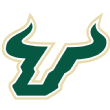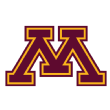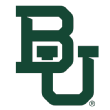Every new coach has an ace in the hole, to pull out if things go poorly during his first season at the helm.
We're changing the culture here and it will take time. ... I inherited a roster in rough shape. ... These guys have to learn how to win.
College football fans know these lines well. First-year coaches recite them each November. They support the belief that the coach needs time to win. In most cases, it's a correct belief.
But not in every case. Some new coaches step into turnkey situations or at least ones where the roster, if developed correctly, can achieve some level of success. They shouldn't get the luxury of the "Hey, I'm new" excuse.
Here's a look at coaches who shouldn't be given a pass in Year 1, those justified in asking for more time, and those somewhere in between.
No excuses
 Ed Orgeron, LSU: As LSU's defensive line coach and then interim head coach, Orgeron knows how much talent is packed into this roster. There's some youth on defense but plenty of speed and a game-changing pass-rusher in Arden Key. Leonard Fournette will be missed at running back but not as much as originally thought, as Derrius Guice looked great in SEC play last season. Quarterback mismanagement cost Les Miles his job, and while Orgeron doesn't inherit a great situation there, Danny Etling is tough and experienced. New offensive coordinator Matt Canada has the type of system to finally give LSU's offense a schematic edge it lacked under Miles. Alabama remains the team to beat in the SEC West and Auburn looks formidable, too, but LSU is good enough to win at least nine games in Coach Oeaux's first full season.
Ed Orgeron, LSU: As LSU's defensive line coach and then interim head coach, Orgeron knows how much talent is packed into this roster. There's some youth on defense but plenty of speed and a game-changing pass-rusher in Arden Key. Leonard Fournette will be missed at running back but not as much as originally thought, as Derrius Guice looked great in SEC play last season. Quarterback mismanagement cost Les Miles his job, and while Orgeron doesn't inherit a great situation there, Danny Etling is tough and experienced. New offensive coordinator Matt Canada has the type of system to finally give LSU's offense a schematic edge it lacked under Miles. Alabama remains the team to beat in the SEC West and Auburn looks formidable, too, but LSU is good enough to win at least nine games in Coach Oeaux's first full season.
 Tom Herman, Texas: Even as Texas went downhill last season, those around the sport noted that whoever coached the Longhorns in 2017 would have a roster ready to win. Herman has some challenges in Austin, namely upgrading recruiting, but he has enough depth to win in Year 1. The defense returns 10 starters, including second-team All-Big 12 lineman Breckyn Hager. Texas has numbers at the offensive skill spots other than quarterback, where Shane Buechele enters his second season as the starter. While the Oklahoma schools are justifiably projected atop the Big 12, Texas shouldn't be too far behind in Herman's debut season, especially if the Longhorns capitalize during the second half of the slate.
Tom Herman, Texas: Even as Texas went downhill last season, those around the sport noted that whoever coached the Longhorns in 2017 would have a roster ready to win. Herman has some challenges in Austin, namely upgrading recruiting, but he has enough depth to win in Year 1. The defense returns 10 starters, including second-team All-Big 12 lineman Breckyn Hager. Texas has numbers at the offensive skill spots other than quarterback, where Shane Buechele enters his second season as the starter. While the Oklahoma schools are justifiably projected atop the Big 12, Texas shouldn't be too far behind in Herman's debut season, especially if the Longhorns capitalize during the second half of the slate.
 Charlie Strong, South Florida: The irony here is Strong steps into a better situation at USF than he ever had at Texas. The Bulls should be the American Athletic Conference favorite after returning 16 starters from an 11-win team, led by quarterback Quinton Flowers. Houston showed the past few seasons what a transcendent quarterback can do in the AAC, and Flowers may end up being better than Greg Ward Jr. Offensive coordinator Sterlin Gilbert, brought from Texas by Strong, will be able to mix and match in the passing game. The defense needs significant upgrades, but it's also Strong's specialty and an area where he should have more success than he did at Texas. Anything short of an AAC East title would be disappointing for Strong in Year 1.
Charlie Strong, South Florida: The irony here is Strong steps into a better situation at USF than he ever had at Texas. The Bulls should be the American Athletic Conference favorite after returning 16 starters from an 11-win team, led by quarterback Quinton Flowers. Houston showed the past few seasons what a transcendent quarterback can do in the AAC, and Flowers may end up being better than Greg Ward Jr. Offensive coordinator Sterlin Gilbert, brought from Texas by Strong, will be able to mix and match in the passing game. The defense needs significant upgrades, but it's also Strong's specialty and an area where he should have more success than he did at Texas. Anything short of an AAC East title would be disappointing for Strong in Year 1.
Partially excused
 P.J. Fleck, Minnesota: Fleck is a strong pivot from Tracy Claeys and Jerry Kill. The roster trends younger, and Fleck will need to build long-term depth through better recruiting. But let's not forget this team won nine games last season, its second most victories since 1905. Minnesota won under Kill and Claeys with defense and the run game, two areas that could still be strengths (secondary depth is a concern). Fleck should immediately improve the wide receivers, the position he played in college and where he started in coaching. While Claeys' tenure ended on a controversial note, Minnesota isn't a mess. While nine wins might be tough to repeat, a bowl appearance shouldn't be.
P.J. Fleck, Minnesota: Fleck is a strong pivot from Tracy Claeys and Jerry Kill. The roster trends younger, and Fleck will need to build long-term depth through better recruiting. But let's not forget this team won nine games last season, its second most victories since 1905. Minnesota won under Kill and Claeys with defense and the run game, two areas that could still be strengths (secondary depth is a concern). Fleck should immediately improve the wide receivers, the position he played in college and where he started in coaching. While Claeys' tenure ended on a controversial note, Minnesota isn't a mess. While nine wins might be tough to repeat, a bowl appearance shouldn't be.
 Willie Taggart, Oregon: The Ducks bottomed out last season, both on the field and in the locker room, and Taggart certainly inherits some challenges in Eugene. He also inherits one of the Pac-12's better offensive backfields in running back Royce Freeman (4,146 career rush yards, 44 touchdowns) and quarterback Justin Herbert, who has drawn positive reviews from opposing coaches. Combining the duo with a suddenly experienced offensive line, Oregon should be able to keep scoring. The defense is another story after finishing last in the FBS in expected points added in 2016. Taggart hired the right man to turn things around in coordinator Jim Leavitt, and if the unit simply makes marginal strides, more victories should follow. No one expects Oregon to win the Pac-12 North in Taggart's first season, but seven or eight wins is a reasonable expectation.
Willie Taggart, Oregon: The Ducks bottomed out last season, both on the field and in the locker room, and Taggart certainly inherits some challenges in Eugene. He also inherits one of the Pac-12's better offensive backfields in running back Royce Freeman (4,146 career rush yards, 44 touchdowns) and quarterback Justin Herbert, who has drawn positive reviews from opposing coaches. Combining the duo with a suddenly experienced offensive line, Oregon should be able to keep scoring. The defense is another story after finishing last in the FBS in expected points added in 2016. Taggart hired the right man to turn things around in coordinator Jim Leavitt, and if the unit simply makes marginal strides, more victories should follow. No one expects Oregon to win the Pac-12 North in Taggart's first season, but seven or eight wins is a reasonable expectation.
 Tom Allen, Indiana: Like Minnesota, Indiana had unusual circumstances surrounding its coaching transition, which came after the team qualified for consecutive bowl games for the first time since 1990 and 1991. In promoting Allen, the Hoosiers' defensive coordinator, athletic director Fred Glass hopes to maintain continuity and positive momentum. Allen made an immediate impact on Indiana's defense last fall, and the unit no longer makes Hoosiers fans cover their eyes. The unit could show more improvement with nine starters back this fall. There are more questions on offense, as Indiana loses standout lineman Dan Feeney and running back Devine Redding. But quarterback Richard Lagow, wideout Nick Westbrook and others return. Indiana opens Big Ten play with Ohio State, Penn State and Michigan, but if it can handle business in nonleague play and down the stretch, another bowl appearance is realistic.
Tom Allen, Indiana: Like Minnesota, Indiana had unusual circumstances surrounding its coaching transition, which came after the team qualified for consecutive bowl games for the first time since 1990 and 1991. In promoting Allen, the Hoosiers' defensive coordinator, athletic director Fred Glass hopes to maintain continuity and positive momentum. Allen made an immediate impact on Indiana's defense last fall, and the unit no longer makes Hoosiers fans cover their eyes. The unit could show more improvement with nine starters back this fall. There are more questions on offense, as Indiana loses standout lineman Dan Feeney and running back Devine Redding. But quarterback Richard Lagow, wideout Nick Westbrook and others return. Indiana opens Big Ten play with Ohio State, Penn State and Michigan, but if it can handle business in nonleague play and down the stretch, another bowl appearance is realistic.
Give 'em a pass
 Matt Rhule, Baylor: No first-year coach steps into a more delicate -- and unique -- situation than Rhule. The aftershocks from the Baylor scandal are still being felt, and Rhule, an outsider, will oversee a locker room that remains, at least in part, loyal to Art Briles. Baylor is hardly a mess on the field after making seven consecutive bowl appearances and going 50-15 between 2011 and 2015. Rhule inherits a roster that could be good enough to keep the bowl streak going. But the number of changes in Waco, not to mention schematic shifts Rhule will bring, make a step backward understandable if it occurs. Rhule received a seven-year contract for a reason. He deserves some time to get things right off the field first.
Matt Rhule, Baylor: No first-year coach steps into a more delicate -- and unique -- situation than Rhule. The aftershocks from the Baylor scandal are still being felt, and Rhule, an outsider, will oversee a locker room that remains, at least in part, loyal to Art Briles. Baylor is hardly a mess on the field after making seven consecutive bowl appearances and going 50-15 between 2011 and 2015. Rhule inherits a roster that could be good enough to keep the bowl streak going. But the number of changes in Waco, not to mention schematic shifts Rhule will bring, make a step backward understandable if it occurs. Rhule received a seven-year contract for a reason. He deserves some time to get things right off the field first.
 Justin Wilcox, Cal: It's always about winning in college football, but the goals for Wilcox's first year should be more abstract. Chief among them is improving a defense that last season finished 126th in expected points added, ahead of only Texas Tech and Oregon. It will take time to upgrade the talent, but Wilcox's mere presence should yield better results on that side of the ball. The rebuild on defense combined with major questions at quarterback and a brutal schedule -- Cal faces two Power 5 teams out of conference (North Carolina, Ole Miss) and visits Oregon, Washington, Colorado, Stanford and UCLA in Pac-12 play -- should lower expectations. The Bears could be the weakest team in the Pac-12 North, and Wilcox needs at least a year to get things on track.
Justin Wilcox, Cal: It's always about winning in college football, but the goals for Wilcox's first year should be more abstract. Chief among them is improving a defense that last season finished 126th in expected points added, ahead of only Texas Tech and Oregon. It will take time to upgrade the talent, but Wilcox's mere presence should yield better results on that side of the ball. The rebuild on defense combined with major questions at quarterback and a brutal schedule -- Cal faces two Power 5 teams out of conference (North Carolina, Ole Miss) and visits Oregon, Washington, Colorado, Stanford and UCLA in Pac-12 play -- should lower expectations. The Bears could be the weakest team in the Pac-12 North, and Wilcox needs at least a year to get things on track.
 Jeff Brohm, Purdue: Remember when Purdue went to 10 bowls in 11 seasons and won eight games or more six times during that span? You probably don't, but it happened from 1997 to 2007 under Joe Tiller. Purdue then endured one of the most forgettable stretches of any Power 5 program in recent years. Brohm looks like an excellent hire who will provide a much-needed jolt to a program with a strong history at quarterback. He inherits a promising quarterback in David Blough, but the lack of depth along the offensive line and in other spots suggests Purdue likely will struggle in Year 1. The start to the schedule does Brohm no favors, either, as Purdue opens with Lamar Jackson-led Louisville and faces Michigan, Minnesota and Wisconsin to open Big Ten play.
Jeff Brohm, Purdue: Remember when Purdue went to 10 bowls in 11 seasons and won eight games or more six times during that span? You probably don't, but it happened from 1997 to 2007 under Joe Tiller. Purdue then endured one of the most forgettable stretches of any Power 5 program in recent years. Brohm looks like an excellent hire who will provide a much-needed jolt to a program with a strong history at quarterback. He inherits a promising quarterback in David Blough, but the lack of depth along the offensive line and in other spots suggests Purdue likely will struggle in Year 1. The start to the schedule does Brohm no favors, either, as Purdue opens with Lamar Jackson-led Louisville and faces Michigan, Minnesota and Wisconsin to open Big Ten play.
